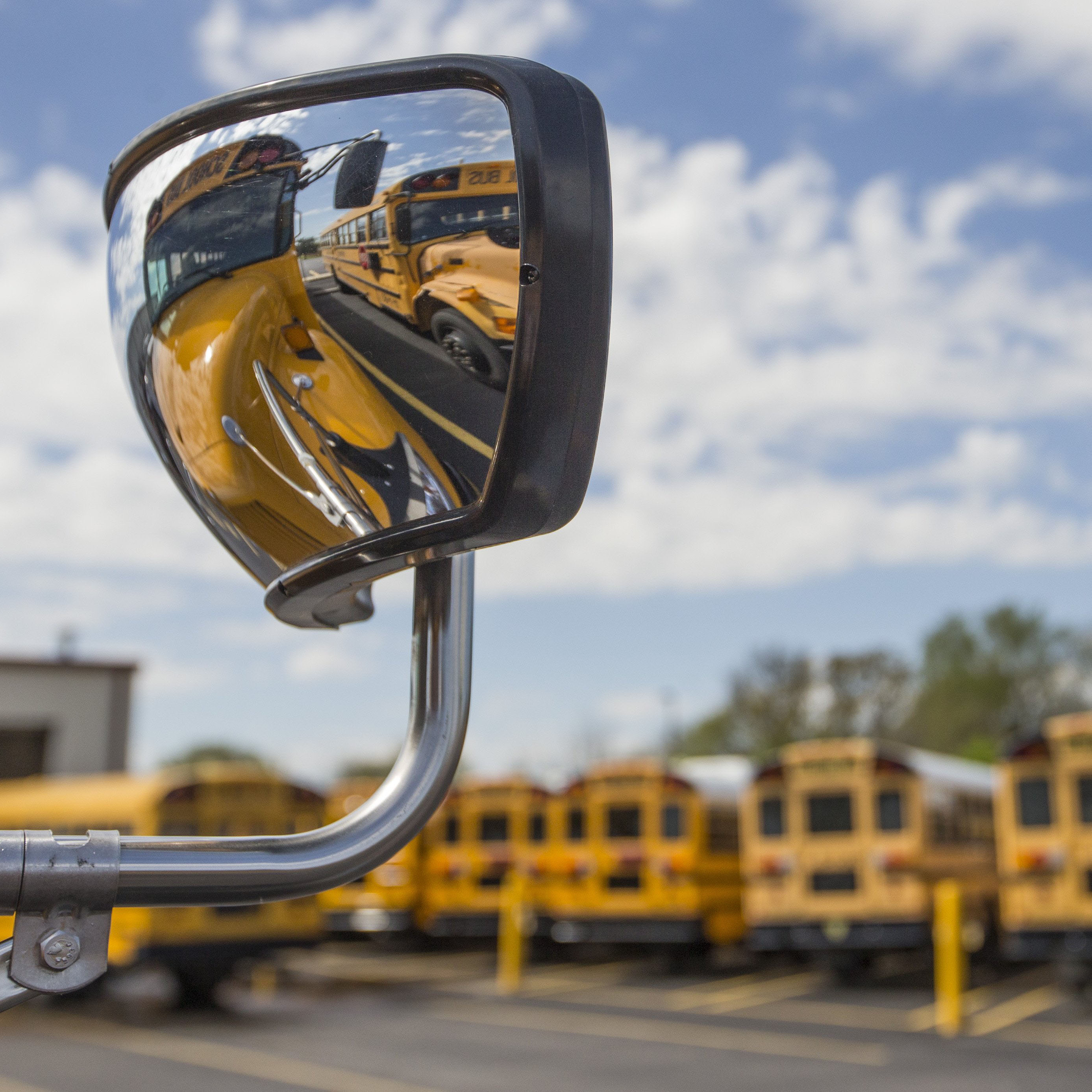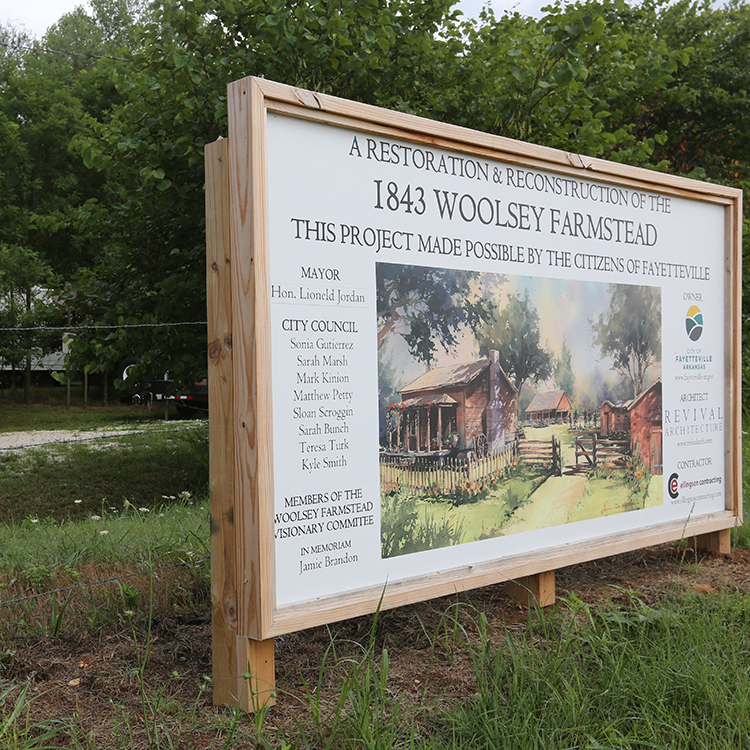Episode Transcript
[00:00:09] Speaker A: Hello, my name is Grace Hurt and I'm a reporter with the Northwest Arkansas Democrat Gazette. I'm here today with Kent Eigenberry, president and CEO of the Northwest Arkansas Food bank, to discuss food insecurity in the area, some of the trends the food bank has been seeing and how the community can help this holiday season. Thanks for being here, Ken.
[00:00:29] Speaker B: You bet, thanks for having me.
[00:00:31] Speaker A: Alright, to start us off, can you just tell us what does it mean to be food insecure?
[00:00:37] Speaker B: The easiest way to describe food insecurity is simply not having the resources to put a balanced meal on the table.
It doesn't mean being hungry.
You can tell by looking at me. I get hungry on a regular basis, but I have the opportunity to feed that hunger.
Food insecure individuals may eat, but they may not eat healthy. And so it's all about consistency and being able to put a healthy meal on the table.
[00:01:12] Speaker A: And what are some of the trends that you've been seeing this year regarding food insecurity in northwest Arkansas?
[00:01:18] Speaker B: I think probably the biggest trend that we're seeing is after Covid, everybody expected things to go back to normal, but because of inflation, because of the cost of living is escalating so much faster than wages. And please don't take that as a plea to raise minimum wage.
That's not going to solve the problem. But that gap between what people make and what it costs to live is getting bigger and bigger and bigger. Because of that gap, more and more people are entering the charitable food system. We have a lot of first time users.
[00:02:04] Speaker A: And how many, or can you give a rough estimate of how many are affected? In the northwest Arkansas area, 89,000 in.
[00:02:13] Speaker B: Benton, Carroll, Washington and Madison county, between 1 in 6 and 1 in 7 of our total population is food insecure. And people, you know, when I tell people that number and they're just, they're aghast that, you know, here we are in, you know, northwest Arkansas where there's all the money in the world. People think, especially if you're in other parts of the state, but seriously it is hard for people to believe but again, it goes back to simply a matter of mathematics that there, there are a lot of people who have a lot of money and are very blessed to have money and there are a lot of people who are working, trying to make ends meet that just can't stretch it far enough. So all of a sudden they become food insecure.
And if they are making it, I just for example myself got a nail in my tire so I took it to the shop to get the nail or get the nail come out, get the tire fixed. Well, they called me and say because of where it's at in the tire, they can't fix it. So I had to buy a new tire.
Now, fortunately, I can take that $289 expense that was not budgeted and I can cover that and still be able to provide food for my family. But there are literally thousands of people who, if they were in that same situation, that one incident's the one, it's going to push them over the edge.
[00:03:58] Speaker A: And with such a large number of people who are affected in the area, why is it not something that more people are aware of?
[00:04:06] Speaker B: People don't want to talk about it.
[00:04:08] Speaker A: Why do you think that is?
[00:04:11] Speaker B: A couple reasons. One is if they are food insecure, they don't want to admit it. They're embarrassed.
The more mature food insecure neighbors don't want the help. They think that there are people out there that need the help worse than they do, and so their pride doesn't let them get assistance.
But again, it's.
The third reason is the people who are food insecure may not necessarily know where to go to get help. And that's one of my bigger challenges is marketing to those people who need help, trying to reach them and let them know that there is someplace out there for them to go.
[00:05:01] Speaker A: And with that kind of stigma of not wanting to seek that help or thinking that someone needs it more, what are some of the things that we can do to kind of help remove or reduce that stigma?
[00:05:12] Speaker B: Well, you know, one of the things I tell people is I wouldn't have a job if there wasn't individuals who were food insecure. So, and I say that jokingly, but you know, that's. There is a whole support system built out there to help these people. And it is a large part of the economy in Northwest Arkansas, so people have to take advantage of it.
[00:05:42] Speaker A: And then for the past five years, we've been partnering with the Northwest Arkansas Food bank and our Community Christmas Card Fundraiser, a program that's allowing the community to donate to a good cause. How have you seen this program impact the Food Bank's mission and goals in the past years?
[00:06:00] Speaker B: Well, again, it's twofold. One, the money that comes in from the Community Christmas Card is immediately put into use to feed somebody who needs help.
The second thing is the exposure.
Every time that reindeer is on the front page of the newspaper with a little blurb about food insecurity, it pounds that message home that there are people who need Help in northwest Arkansas.
[00:06:30] Speaker A: And this year the donations are going towards the school pantry program. Correct. Can you just tell us about what that program is?
[00:06:37] Speaker B: So, and I wish I knew the exact number. We've got approximately 15 area schools that have pantries in them and it's designed so that the entire family can get food to take home.
You know, each school operates independently and operates differently, but it's just, you know, it's a way for us to get food to someplace where we know a food insecure individual is going to be there.
Again, going back to access as being one of our challenges, we try to go and distribute where people are and people are picking up their kids. And certainly it's critical that children under the age of 18 are eat nutritious meals.
We talk about generational poverty and when a kid doesn't get good nutrition or doesn't get food, they fall behind in school and their classmates go on. And just as there's that gap in economy we talked about earlier, there's that gap in the education and performance and those people who eat well get better education, get better jobs, and that gap continues to perpetuate itself.
[00:08:19] Speaker A: And you were talking about exposure in the schools and does having it in the schools help kind of encourage that, a reduce in that stigma about it just because it's directly affecting children?
[00:08:34] Speaker B: Absolutely.
[00:08:39] Speaker A: And I mean, you've kind of talked about it, but kind of. Just to reiterate, what is some of the impact you've seen this pantry program have on the community?
[00:09:04] Speaker B: You know, I've seen, I've never been food insecure, but I've seen food insecurity. And I've seen people who, especially parents, come to a food pantry not knowing if they were going to be able to feed their kids that night, but yet when they got sack of groceries, you could just see the look of despair in their face turn to a look of hope. You could see relief in their eyes that, you know, they weren't going to have to go home that night and tell their kids, I'm sorry, you're going to have to go to bed hungry tonight because we don't have anything to feed you.
It's emotional. It really is.
[00:09:54] Speaker A: And beyond this holiday season and donating to the Christmas card program, how can the community come together and kind of take a part in combating food insecurity?
[00:10:04] Speaker B: Well, food insecurity happens year round.
So, you know, there are, you know, we're in business 365 days a year to distribute food, to collect food, and not everybody has to donate money if they have time.
We have a great volunteer program. Somebody can come to the food bank and just volunteer for a couple hours.
Go to nwafoodbank.org and click on volunteer and get more information.
Obviously, we do have tremendous buying power through our affiliation with Feeding America. So if somebody gives us a dollar, we can turn that into about three and a half meals.
But I'm also not going to tell somebody, don't give me groceries, because there's that the warm fuzzy feeling that comes from going out and shopping and donating food. So any of those things work and then just, you know, if you know of somebody who's food insecure, tell them, tell them the food banks there to help and ask them to again, go to. Go to the food bank. There are some spots on there that says find food and it'll point whoever needs help in the direction of where they need to go.
[00:11:40] Speaker A: And then is there anything else that you think is important for the community to know?
[00:11:46] Speaker B: Yeah, I think so. I think it's important that the community remembers that. This is the Northwest Arkansas Food bank, is the community's food bank.
You know, we're in a new building. We moved in June of this summer. It's about 83,000 square foot facility. We'll take Northwest Arkansas Food bank for the next 25 to 30 years before they need to really look at its capacity. But it's the community's food bank and I just happen to have the keys to the building and I, you know, encourage anybody who is interested to come to the food bank and say, hey, I want to see my food bank. And by golly, we'll show you around.
[00:12:31] Speaker A: Okay. All right. Well, thank you for speaking with us today, Kent. And if you're interested in learning more about the community Christmas card program and how you can donate, visit nwaonline.com nwachristmascard we will be accepting donations through December 31st. Thank you for listening.

